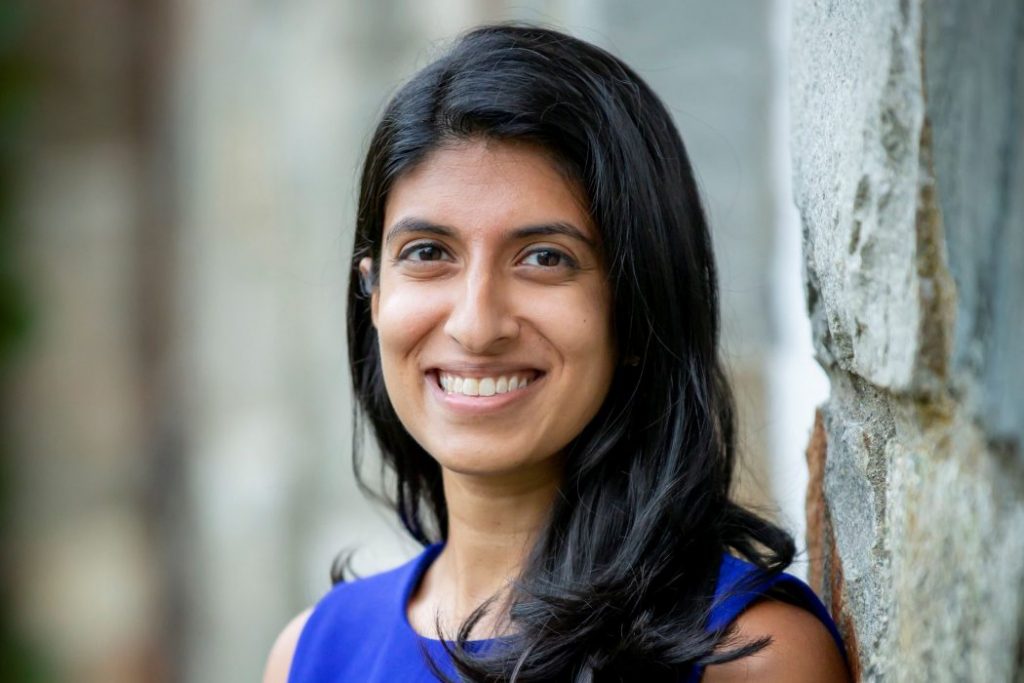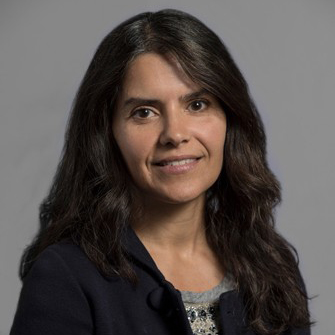Continuing its commitment to provide students with hands-on experience in civil rights advocacy, particularly at a time when such matters have become increasingly acute, Boston College Law School this semester launched two clinics that address a host of civil rights, workers’ rights, and housing issues.
Assistant Clinical Professor Reena Parikh (above) is the founding director of the Civil Rights Clinic and Visiting Professor Ana Rivera ’95 is directing the Covid Relief Housing Clinic. Both programs are under the umbrella of the BC Law Center for Experiential Learning.
“These two clinics, and all of our current clinics, represent our shared commitment to address long-term social issues and provide immediate relief to those suffering during this pandemic,” said Professor Judy McMorrow, associate dean for experiential learning and global engagement.
The Civil Rights Clinic welcomed eight students into the inaugural clinic cohort in January. The program embraces a multi-pronged approach to lawyering, working with individuals and community-based organizations to address civil rights issues facing low-wage workers, immigrants, and prisoners in Massachusetts.
Students are working in teams and each student is assigned to one litigation matter and one community group advocacy matter. “This model exposes students to individual client representation, as well as community and group advocacy—all of which is critical to furthering their understanding of how to be effective advocates,” said Professor Parikh.
At a presentation about the clinic to the larger BC community on March 2, hosted by the Center for Human Rights and International Justice, Parikh spoke about the state of the labor laws in the US and Massachusetts.
She noted that while Massachusetts has made recent strides in extending labor protections to certain categories of low-wage workers, including with the passage of the Domestic Worker Bill of Rights, more must be done to enforce such laws that continue to exclude, for example, farmworkers from minimum wage and overtime protections under federal and state law. The clinic endeavors to tackle issues just like this through its wide-ranging docket.
On the Community Group Advocacy Docket this semester, the clinic is providing legal and policy research to a number of different grassroots and membership-based organizations on projects ranging from a state legislative advocacy campaign related to low-wage workers; to conducting a study on the effectiveness of an existing state law designed to help low-wage workers; and supporting a wide-scale, wage theft organizing campaign.
The clinic’s Litigation Docket this semester includes filing a federal civil rights action for illegal body searches of their client; an action for unlawful delay in adjudicating their clients’ U-visa petitions and employment authorization applications; a wage theft matter involving a domestic worker subjected to unlawful wage deductions by her employer; and an amicus brief to the First Circuit in support of Black and Latinx police officers who are arguing that a test used by the City of Boston to make lieutenant promotions was discriminatory under Title VII.
In the new Covid Relief Housing Clinic being run by Rivera, students are providing limited representation to low-income tenants facing Covid-impacted evictions. The clinic, jointly sponsored between BC Law and Waltham Alliance for Teaching, Community Organizing, and Housing (WATCH), is committed to helping Waltham residents. Students are learning substantive housing law and practicing a variety of lawyering skills such as interviewing and counseling, preparation of pleadings and motions, and oral advocacy, including negotiation.
The representation may include virtual court appearances in court-led mediation sessions and hearings before housing court judges. In the process, students will gain understanding of the context of the lives of those inequitably impacted by the pandemic, explore the systemic factors that lead to those inequities, and assist with community-based efforts to address them.



